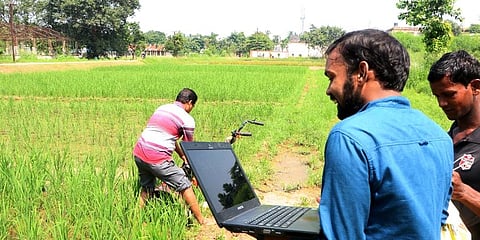

BHUBANESWAR: The presence of heavy metals and metalloids in food grains and vegetables could be
the reason behind rising chronic kidney ailments in some parts of Cuttack district and long-term consumption of food crops contaminated with heavy metals may pose the risk of cancer, claimed a recent study.
Agriculture scientists from Odisha University of Agriculture and Technology (OUAT), SOA university and Birsa Agricultural university found that the levels of cadmium (Cd), lead (Pb), mercury (Hg), and arsenic (As) in rice, pulses, and vegetables in the study areas under Narasinghpur block exceeded the WHO and Food and Agriculture Organisation (FAO) permissible levels.
The study examined the heavy metal concentration of commonly consumed and locally grown food crops in chronic kidney disease (CKD) endemic areas of Cuttack district.
Nine crops - one cereal (rice), two pulses (green gram and black gram), and six vegetables belonging to three different groups - root, fruit, and leafy vegetables (potato, carrot, tomato, okra, and spinach), were selected for the study, as these crops are mostly consumed and frequently grown in the region.
The researchers found that the lead concentration in all samples was higher than the standard value (0.1 mg/kg), suggesting excessive lead contamination in food crops grown in the area and potential health risks to consumers.
It was also found that spinach, paddy, potato, carrot, black gram, mustard, okra, tomato, and green gram contain 105, 79, 44.5, 34, 20, 19, 18, 17, and 13 times more concentrations of Pb than the maximum allowable concentration. Usually, Cd and Pb accumulate in the renal cortex and bone, respectively.
The study claimed frequent exposure to Cd, Pb, As, and Hg causes renal tubular alterations, especially in the proximal convoluted tubule, and, in rare cases, acute renal failure that leads to chronic kidney disease while lead is linked to terminal stages.
"In sensitive individuals with hypertension or diabetes, consumption of foods with high Cd may synergistically develop and progress CKD. Long-term application of fertiliser and industrial sediments in Mahanadi, the main source of irrigation in the region, could be the source of heavy metal accumulation in crops," the study report stated.
The scientists warned that toxic metals have potential adverse effects on human health, and exposure to certain carcinogenic metals, especially over extended periods of time, can raise the risk of developing cancer.
Stating that long-term consumption of food crops contaminated with heavy metals may pose numerous health risks, they have advised routine monitoring and preventive measures to avoid excess accumulation of these metals in the food chain.
The study has been published in the recent issue of Frontiers in Environmental Science. A total of 118 crop samples collected between January and March 2022 were examined.